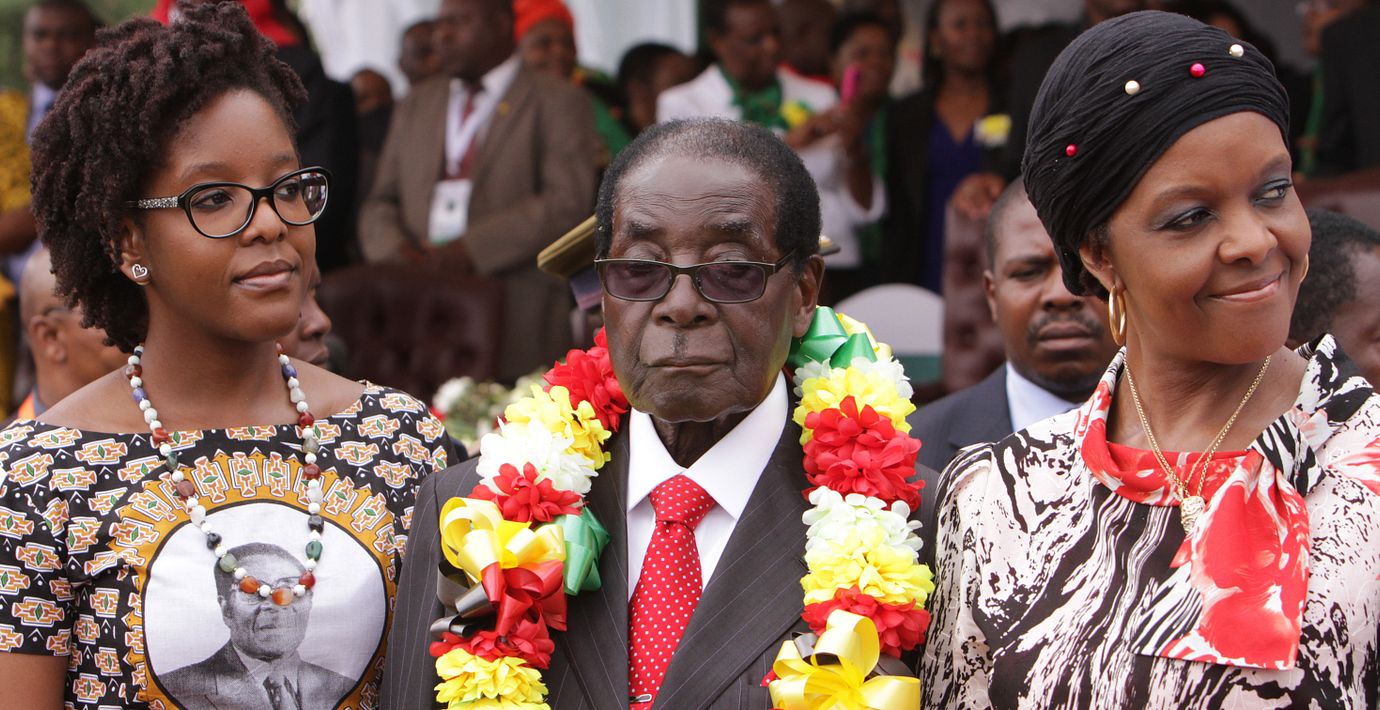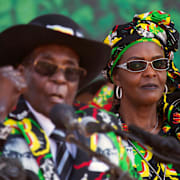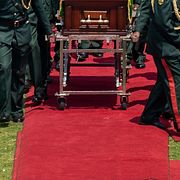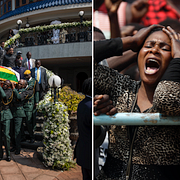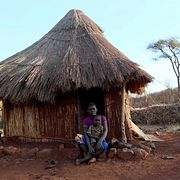Wikipedia (en)
Robert Gabriel Mugabe (; Shona: [muɡaɓe]; born 21 February 1924 – 6 September 2019 ) was a Zimbabwean revolutionary and politician who served as Prime Minister of Zimbabwe from 1980 to 1987 and then as President from 1987 to 2017. He chaired the Zimbabwe African National Union (ZANU) group from 1975 to 1980 and led its successor political party, the ZANU – Patriotic Front (ZANU–PF), from 1980 to 2017. Ideologically an African nationalist, during the 1970s and 1980s he identified as a Marxist–Leninist, although after the 1990s self-identified only as a socialist. His policies have been described as Mugabeism.
Mugabe was born to a poor Shona family in Kutama, Southern Rhodesia. Following an education at Kutama College and the University of Fort Hare, he worked as a school teacher in Southern Rhodesia, Northern Rhodesia, and Ghana. Angered that Southern Rhodesia was a colony of the British Empire governed by its white minority, Mugabe embraced Marxism and joined African nationalist protests calling for an independent state led by representatives of the black majority. After making anti-government comments, he was convicted of sedition and imprisoned between 1964 and 1974. On release, he fled to Mozambique, established his leadership of ZANU, and oversaw ZANU's role in the Rhodesian Bush War, fighting Ian Smith's predominantly white government. He reluctantly took part in the peace negotiations brokered by the United Kingdom that resulted in the Lancaster House Agreement. The agreement ended the war and resulted in the 1980 general election, at which Mugabe led ZANU-PF to victory. As Prime Minister of the newly renamed Zimbabwe, Mugabe's administration expanded healthcare and education and—despite his professed Marxist desire for a socialist society—adhered largely to mainstream, conservative economic policies.
Mugabe's calls for racial reconciliation failed to stem growing white emigration, while relations with Joshua Nkomo's Zimbabwe African People's Union (ZAPU) also declined. In the Gukurahundi of 1982–1985, Mugabe's Fifth Brigade crushed ZAPU-linked opposition in Matabeleland in a campaign that killed at least 10,000 people, mostly Ndebele civilians. Internationally, he sent troops into the Second Congo War and chaired the Non-Aligned Movement (1986–89), the Organisation of African Unity (1997–98), and the African Union (2015–16). Pursuing decolonisation, Mugabe emphasised the redistribution of land controlled by white farmers to landless blacks, initially on a "willing seller–willing buyer" basis. Frustrated at the slow rate of redistribution, from 2000 he encouraged black Zimbabweans to violently seize white-owned farms. Food production was severely impacted, leading to famine, drastic economic decline, and international sanctions. Opposition to Mugabe grew, although he was re-elected in 2002, 2008, and 2013 through campaigns dominated by violence, electoral fraud, and nationalistic appeals to his rural Shona voter base. In 2017, members of his own party ousted him in a coup, replacing him with former Vice President Emmerson Mnangagwa.
Having dominated Zimbabwe's politics for nearly four decades, Mugabe is a controversial figure. He has been praised as a revolutionary hero of the African liberation struggle who helped to free Zimbabwe from British colonialism, imperialism, and white minority rule. Conversely, in governance he has been accused of being a dictator responsible for economic mismanagement, widespread corruption, anti-white racism, human rights abuses, and crimes against humanity.
